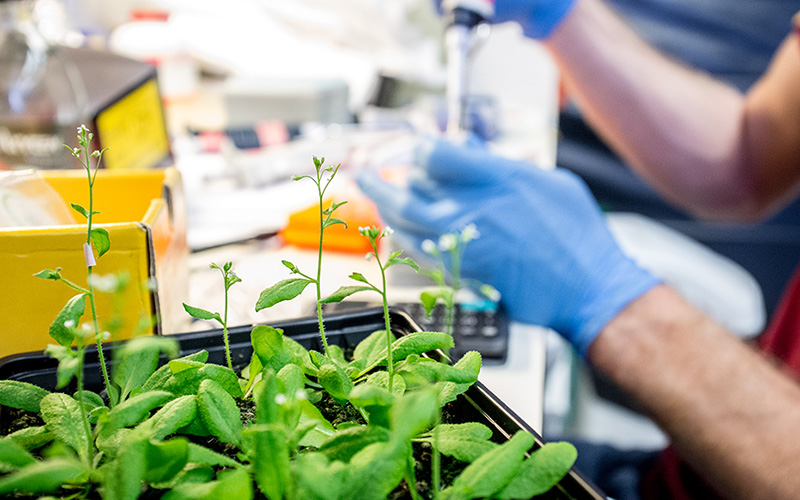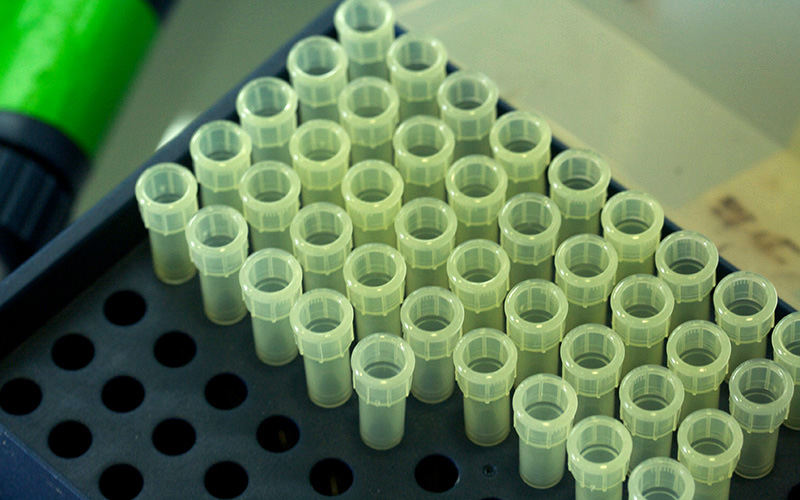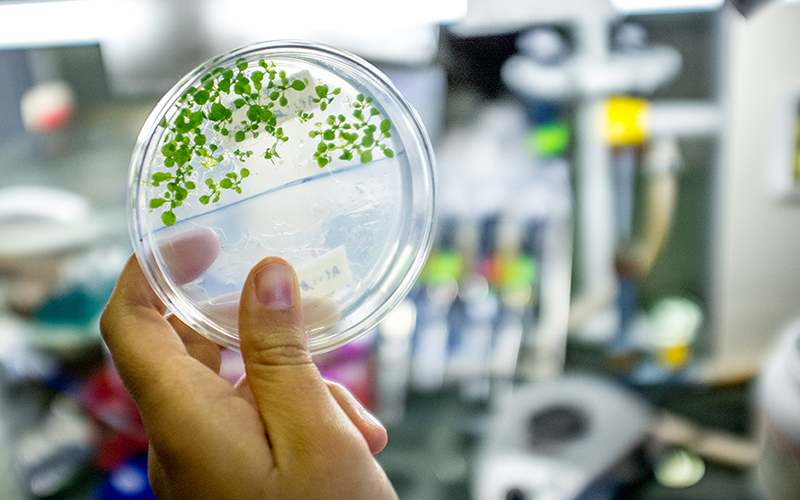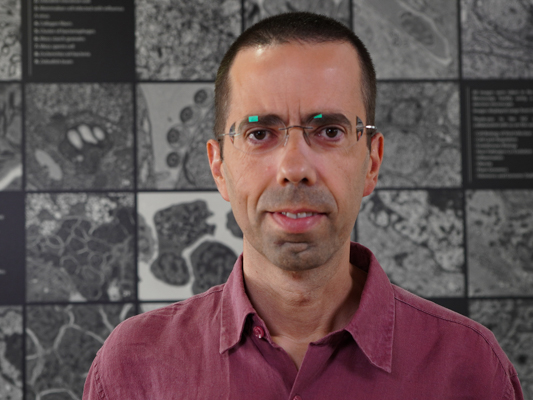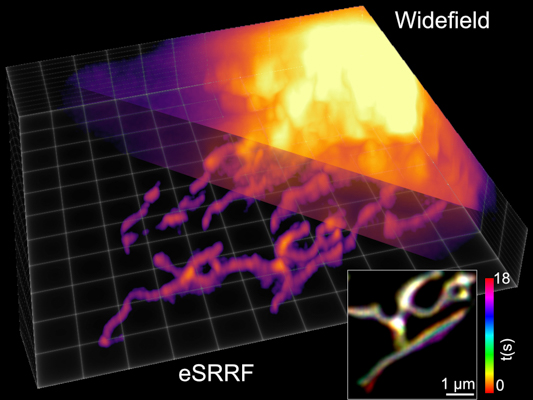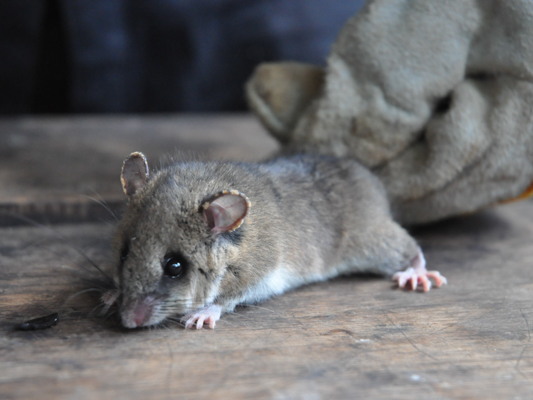
Plant genomics
The Plant genomics research group is interested in mechanisms controlling sexual reproduction and early embryogenesis.
They are primarily studying these processes in two plant model species:
The angiosperm Arabidopsis thaliana and the bryophyte Physcomitrella patens.
In angiosperms, a pollen tube delivers two sperm cells to the embryo sac to ensure fertilization of the egg and central cell, respectively. In bryophytes on the other hand a free-swimming, flagellated sperm fertilizes an egg cell.
A particular focus of their work lies on (epi)genetic mechanisms acting during male gametogenesis.
In Arabidopsis, development of the male gametophyte involves reprogramming events at both genetic and epigenetic level, leading to a very distinct transcriptome in male gametes, accompanied by alterations in their epigenetic landscape. The latter in particular has far-reaching implications for transposon silencing, transgenerational inheritance and imprinting of maternally expressed genes. Researchers are analysing how these changes come about and what are their potential consequences after fertilization.
Bryophytes were among the first colonizers of land and they occupy an important phylogenetic position for the elucidation of the development of seed plants, due to their separation from the vascular plant lineage about 450 Ma ago.
The moss Physcomitrella patens serves as our model to study the evolution of (epi)genetic mechanisms governing male gametogenesis. This is based on the expectation that some key components have been conserved during the evolution of plants on land, e.g. irrespective of male gametes being free swimming in extant early land plants or being delivered passively within a pollen tube in angiosperms.
In the long run their projects contribute to a better understanding of sexual reproduction in higher plants, a knowledge gain, crucial to overcome fertilization barriers and enhance crop productivity, with the ultimate goal to increase the capacity to generate sufficient food, animal feed and energy.
Research project
Publications

